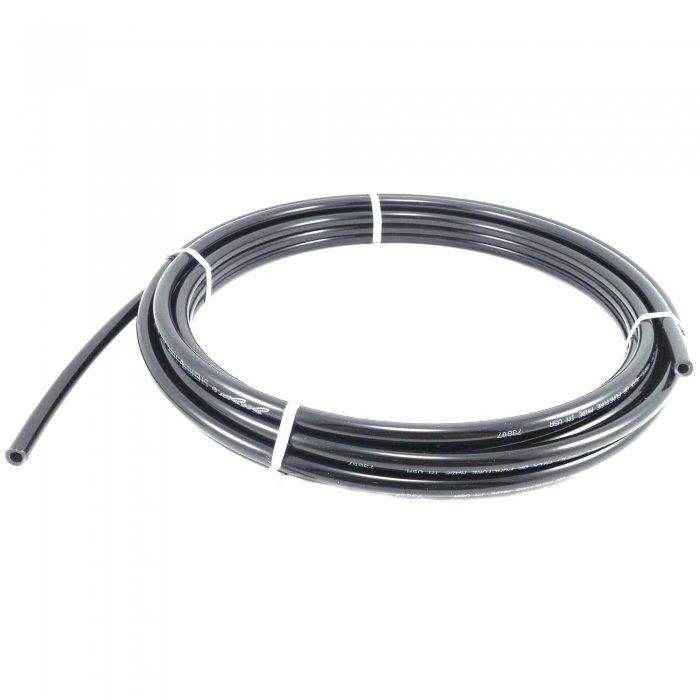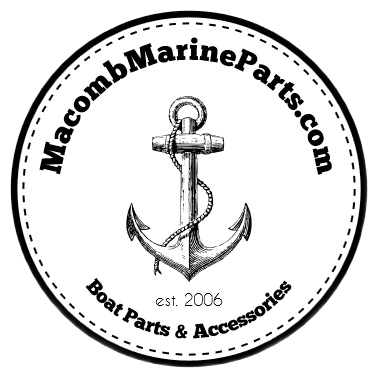
Crusader Marine Engine Parts
Keep Your Crusader Engine Running Strong with Genuine or OEM-Grade Parts from...
Free Ground Shipping to Continental US on
Piranha Propellers,
Propulsion & Performance Kits!

Keep Your Crusader Engine Running Strong with Genuine or OEM-Grade Parts from...
$0.00 USD
Minimum Order of $20 Required for Checkout


Dometic
Buy Now Only: 2 Left!
Couldn't load pickup availability
Hydraulic Steering Nylon Tubing 3/8in.-25 ft. | Dometic Seastar HT5092
25 ft. of 3/8 in. nylon hydraulic tubing for use with many small inboard & stern drive Seastar hydraulic steering systems.
SEASTAR SOLUTIONS Hydraulic Steering Nylon Tubing can be used with Seastar 1.7 helms on stern drives and small inboards with fitting kit (except with HC5332 cylinder). Not to be used with outboard systems.
Dometic SeaStar steering hoses are a custom multi-layered composite design, engineered specifically for our systems. They are designed to exceed SAE and ABYC specifications and provide precise steering control not achievable with hydraulic industry standard hoses.
Two-line manual systems: In these systems the helm pump moves the hydraulic cylinder directly. In use, a clockwise turn of the steering wheel will send fluid from the helm unit into the starboard hydraulic line. This fluid will be pumped into the cylinder and either extend or retract the cylinder rod. Incoming fluid pushes a piston which is pinned to an external rod. As the piston is moved the rod is either extended or retracted, and the boat turns. Outgoing fluid from the other end of the cylinder is returned to the helm via the port side line.
Three-line manual systems Hynautic: Three-line systems are pressurized and contain a separate reservoir and pressure-relief valve. Common on work and pleasure vessels up to 70 feet. Helms are simpler since they do not contain the reservoir or relief valve. The fluid fill is at a remote reservoir, instead of the helm. They use soft refrigeration type copper tubing, instead of nylon hose.
Power assist: For outboards 150hp and above and for twin and triple engine applications, bass boats, pontoon boats, power catamarans and inboard cruisers without engine-driven power assist. Uses an electronically-controlled on-demand hydraulic pump to give your boat the same easy steering you are accustomed to in your car.
Power steering: Larger boats require a bigger system that can handle higher loads typically experienced at the rudder(s). Power steering systems include two distinct operating circuits:
The manual circuit provides the control portion of the steering system, and the power circuit provides the power to turn the rudders. See the diagram of the new Optimus 360 system, which is NMEA 2000 compatible and uses a joystick control.


Would have been 5 stars but, I did not receive a promotional sticker with my $2000 drive unit. Just kidding, everything was great!
Great company to work with!
Ordered a Piranha Propellers Complete A-Series 4 Blade Propeller from Macomb Marine Parts and even though we’re international, it arrived in just over a week — fast and reliable service. The propeller itself is a real lifesaver. We had the same model before, and after hitting a rock that damaged two blades, we were able to swap them right on the water and make it back to the marina without issue — something you simply can’t do with a regular aluminum prop. For peace of mind we decided to buy a complete new set (hub and blades) since an impact like that could cause hidden damage, but the system really proved its worth.
3 in. Exhaust Elbow | Pleasurecraft R029001
Excellent part.
I couldn’t find a Piranha propeller dealer near me in Canada but found Macomb Marine Parts who could deliver to me. The order process was smooth and I was even contacted via email for clarification regarding blade shape and they were very helpful in choosing the best shape for my purposes.
I can’t comment on the prop’s performance yet as we haven’t had the boat in the water yet.
Perfect replacement. thank you
Perfect replacement
Perfect match to the original Chris Craft blue. Competitive price and delivery was quick
Great Product, easy to install, work well
Obtaining magnesium anodes to install on the OMC Cobra (SX-C) sterndrive, for fresh water use. Received the anode within a week of ordering the part, which is not going to be installed until Spring.
Black Liquid Electrical Tape - 4 oz. | Star Brite 084104B
As described
Very Happy!! Just what I needed!!
Outdrive spent 4 months docked in salt water with no visible rust on the stainless steel braided hoses
Would have been 5 stars but, I did not receive a promotional sticker with my $2000 drive unit. Just kidding, everything was great!
Great company to work with!
Ordered a Piranha Propellers Complete A-Series 4 Blade Propeller from Macomb Marine Parts and even though we’re international, it arrived in just over a week — fast and reliable service. The propeller itself is a real lifesaver. We had the same model before, and after hitting a rock that damaged two blades, we were able to swap them right on the water and make it back to the marina without issue — something you simply can’t do with a regular aluminum prop. For peace of mind we decided to buy a complete new set (hub and blades) since an impact like that could cause hidden damage, but the system really proved its worth.
Fill in the required details to get notified when the product is again in stock!
Thanks, We Will Notify You When Product Back In Stock!!
